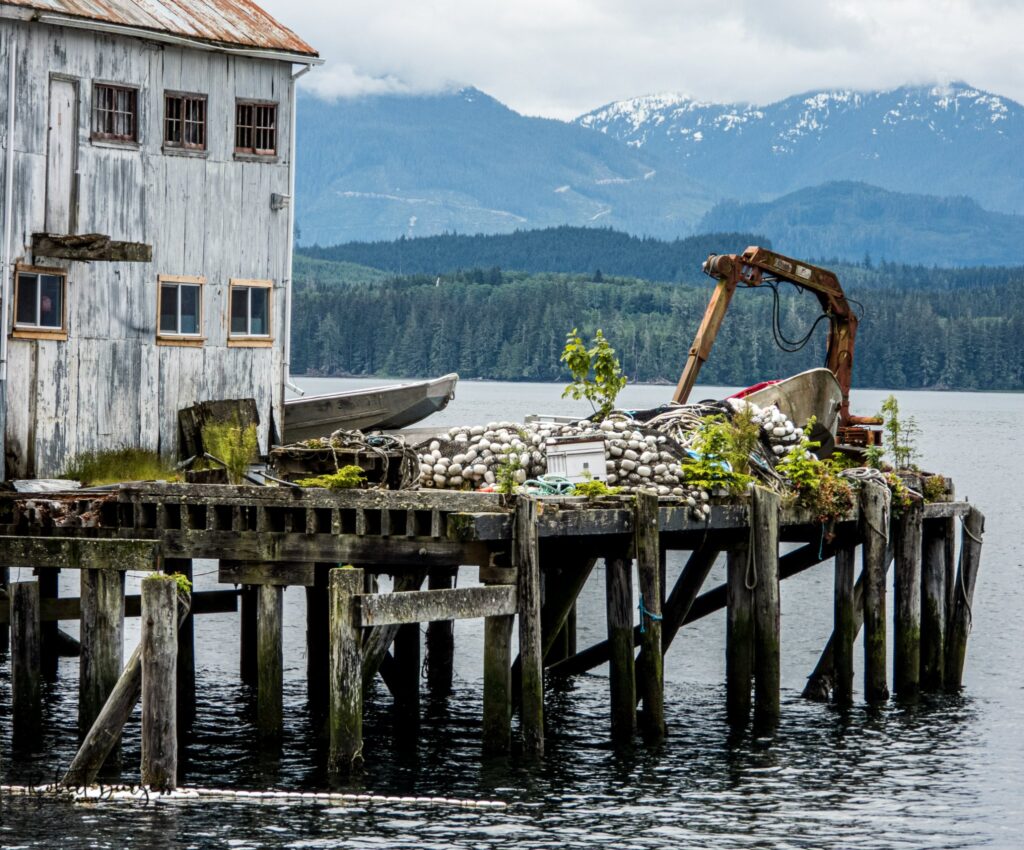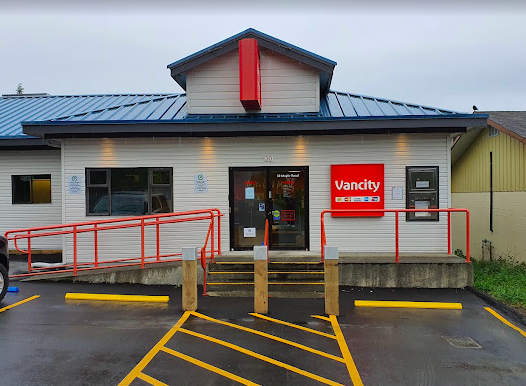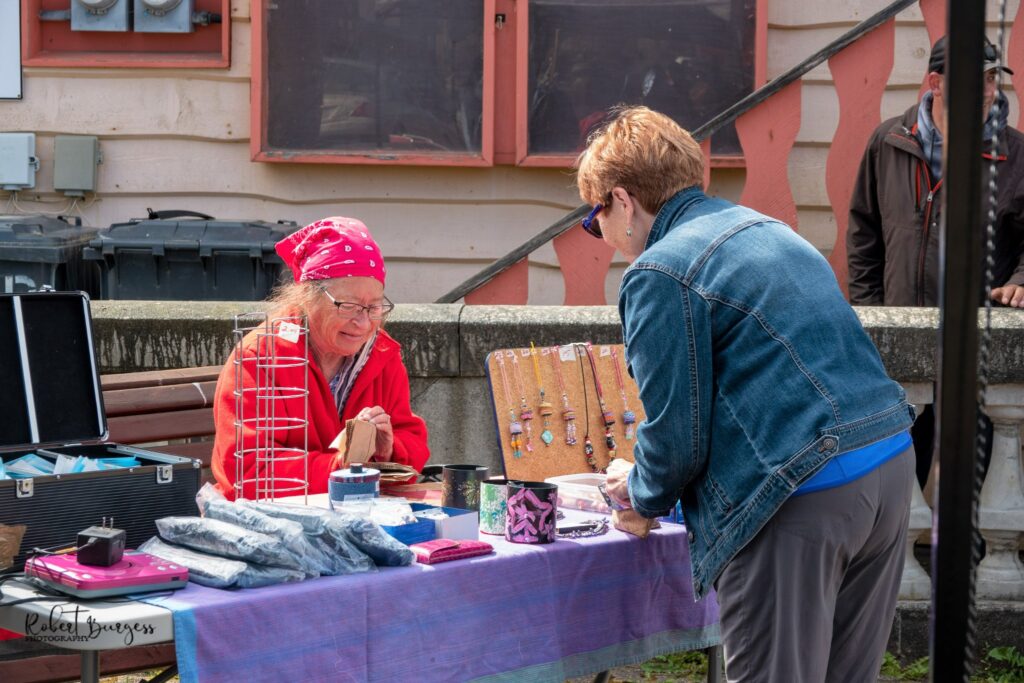Nine years ago, the economic future for people living on B.C.’s Cormorant Island didn’t seem very bright. But fast-forward to the present, and things are looking up for the Village of Alert Bay and the ‘Na̱mgis First Nation.

Source: LinkedIn
“We see signs of rekindled vitality,” Lyle McNish, chief administrative officer of the Village of Alert Bay, told West Coast Now. “There are signs of confidence in the local economy.”
The journey here hasn’t been easy. Back in 2014, Alert Bay and the ‘Namgis First Nation were reeling from massive reductions in commercial fishing and forestry. Then the twin communities suddenly learned their credit union was closing for good.
“The success of that branch is because the ‘Namgis First Nation and village asked, ‘can you help us out?’”
Michelle Laviolette, director of Indigenous banking strategy, Vancity
The closest bank branch would be a 45-minute ferry ride away across Broughton Strait to Port McNeil on Vancouver Island, potentially a several-hour round trip for something as simple as withdrawing money or depositing a cheque.
The communities knew something had to be done. So the ‘Namgis First Nation and the Village of Alert Bay began brainstorming ways to revitalise the local economy. The result was a document called Tides of Change, “one of the first joint economic development strategies in Canada between a First Nation and a municipality.”

Its goals included expanding the harbour, helping local entrepreneurs, cleaning up downtown, and creating a more robust tourism strategy. Community leaders also decided to go out and find a new bank.

That goal came together fast. In 2015, the community signed a unique three-way partnership with Vancity Credit Union, a financial institution headquartered in Vancouver.
Eight years later, the Vancity branch in Alert Bay is still going strong. “The success of that branch is because the ‘Namgis First Nation and village asked, ‘can you help us out?’” says Michelle Laviolette, who was the first manager of the Alert Bay branch and now is Vancity’s director of Indigenous banking strategy. “Once the partnership was there, the community urged members to join, and local governments encouraged businesses to do the same.”
It also helped the island’s inhabitants weather the global coronavirus pandemic.
“The community is changing, banking is changing, the economy is changing. Folks in the North Island have more appetite to do things differently and have confidence it will be okay.”
Michelle Laviolette, director, Indigenous banking strategy, Vancity
“Between COVID and the malaise in resource communities you see across Canada, there was shrinkage in our economy,” says Lyle McNish, chief administrative officer of the Village of Alert Bay.
“But in 2022, we saw a rebound, some return of cruise ship activity. We hosted a vendor’s market in the town square when ships were in,” she explains.
“The local whale-watching business has been sold to new owners, and we see a younger generation moving into that industry.”
Lyle McNish, chief administrative officer, Village of Alert Bay.

“The local whale-watching business has been sold to new owners, and we see a younger generation moving into that industry,” says McNish. “The Pass ’n’ Thyme Restaurant has been sold and reopened as Gordie’s Restaurant and Lounge.”
These days the outlook for Alert Bay and the ‘Namgis is much brighter than it was nearly a decade ago.
“The community is changing, banking is changing, the economy is changing,” says Laviolette. “Folks in the North Island have more appetite to do things differently and have confidence it will be okay.”







